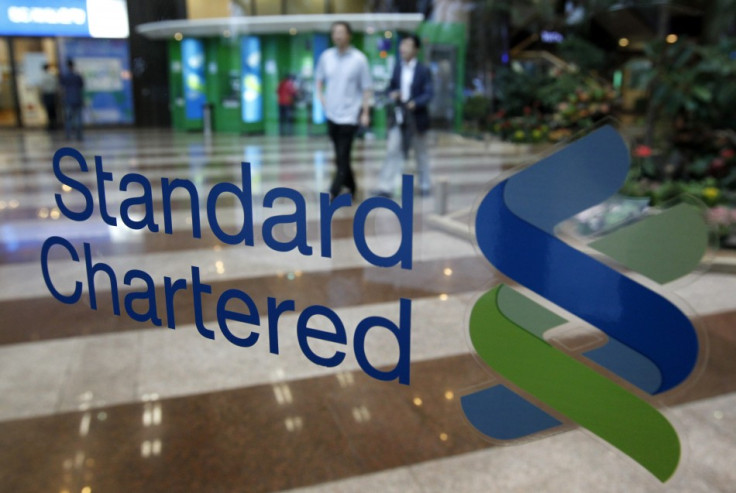Standard Chartered Posts Ninth Straight Year Of Record Earnings

Standard Chartered posted yet another round of record earnings as the UK's second largest bank said income grew at a "high single digit" pace driven by consumer and wholesale-banking operations.
The London-based group, does not issue full quarterly numbers and releases detailed earnings twice a year.
The emerging market-focused bank, which derives four-fifths of its income in Asia said that double digit income growth in Hong Kong, Malaysia, Indonesia, China and the Americas allowed it to hit its ninth consecutive year of record earnings on February 29. However, due to Standard Chartered earning most of its income from Asian currencies, this translates to fewer dollars when the US currency strengthens.
In the Interim Management Statement, Standard Chartered said that the Americas, UK and Europe, as well as the previously mentioned Asia regions, has more than compensated for the impact of subdued domestic business sentiment in India.
"Standard Chartered has had a strong start to 2012, with good performances across a broad spread of geographies and products," says Peter Sands, group chief executive at Standard Chartered. "We continue to benefit from the disciplined execution of our strategy and are very well positioned in dynamic markets with strong fundamentals. We are in excellent shape, we are a growth company and are differentiated by our liquidity and capital strength."
Although India continues to disappoint, buoyant growth in Hong Kong and Singapore more than made up for an increase in staff costs. The bank revealed in February this year that it was looking to hire another 2,600 people, while the rest of the industry, including its closest competitor HSBC, looks to cull jobs globally. However, Standard Chartered confirmed today that its headcount has remained "broadly flat", compared with the end of 2011.
Overall, the company's outlook remained upbeat, with Sands stating that "macroeconomic sentiment is showing signs of improvement, although there remain clear uncertainties and risks in the global environment. "
Despite Standard Chartered posted round after round of record earnings, corporate governance adviser Pensions Investment Research Consultants dragged Standard Chartered into a dispute of executive compensation, after the remuneration committee said last week that investors should vote against the bank's executive pay report because it doesn't disclose long-term bonus targets and Chairman John Peace helps set compensation.
According to Standard Chartered's annual report in 2011, Mike Rees, head of corporate banking, received $13.4m for that year, while the bank's five highest-paid employees got $42.1m in the same period.
Standard Chartered shares dipped 1.8 percent in early London trading, changing hands at 1,484.75 pence per share, paring the year-to-date gain to 5.3 percent.
© Copyright IBTimes 2025. All rights reserved.






















